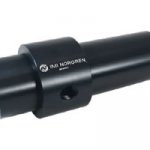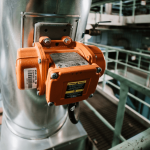Diagnosing and Preventing Common Hydraulic Valve Failures in MRO Systems
Hydraulic valves may seem like small components compared to pumps or actuators, but they are the “traffic controllers” of your maintenance, repair, and operations (MRO) systems. They regulate flow, direct pressure, and maintain safety under demanding conditions. When a hydraulic valve fails, it can create costly downtime, reduce productivity, and even cause safety risks.
Common Causes of Hydraulic Valve Failures
Even the most durable hydraulic valve will wear over time. Understanding what causes failures helps you act before problems escalate.
- Contamination: Dire, debris, and metal shavings are the most common culprits. Contaminants can block valve openings or cause premature wear.
- Overpressure: Operating consistently at or beyond design limits stresses seals and weakens valve internals.
- Heat and Viscosity Issues: Fluid that runs too hot or with incorrect viscosity can reduce lubrication and erode valve performance.
- Improper Installation: Misalignment, incorrect torque, or skipped steps during setup often show up later as valve malfunctions.
Signs Your Hydraulic Valve is Failing
Catching early warning signs can save you from a costly shutdown. Look out for:
- Sluggish or inconsistent actuator movement
- Unusual noises like hissing, chattering, or hammering
- Fluid leaks around valve bodies or fittings
- System overheating despite normal load conditions
If any of these issues appear, it’s time to stop and investigate before a full breakdown occurs.
Diagnosing Hydraulic Valve Problems
Diagnosing issues isn’t about guesswork, but about careful observation and testing. In MRO systems, technicians often start with these steps:
- Visual Inspection: Look for leaks, loose connections, or physical damage.
- Fluid Testing: Analyze hydraulic fluid for contamination and proper viscosity.
- Pressure Checks: Use gauges to confirm pressure is within design range.
- Actuation Tests: Monitor response time and consistency of cylinders and motors connected to the valve.
These diagnostics can narrow down whether the problem lies in the valve itself, upstream contamination, or system pressure imbalance.
Preventing Hydraulic Valve Failures in MRO Systems
Prevention is always more cost-effective than repair. Consider these strategies:
- Routine Fluid Maintenance: Keep hydraulic fluid clean with scheduled filter changes and regular sampling.
- Temperature Control: Use coolers, heaters, or appropriate fluids to maintain optimal temperature.
- Scheduled Inspections: Add valve checks into your preventative maintenance calendar, not just reactive repairs.
- Proper Training: Ensure technicians understand installation procedures and safe troubleshooting practices.
These steps don’t just extend valve life. They keep your entire MRO system operating smoothly.
Trust Air & Hydraulic Equipment with Your Hydraulic Valve Needs
Keeping hydraulic valves running at peak performance often requires more than in-house resources. That’s where Air & Hydraulic Equipment steps in. With decades of experience in hydraulics, pneumatics, and fluid power we provide the expertise, tools, and parts that keep MRO systems reliable. Whether you need diagnostics support, replacement components, or guidance on preventative maintenance strategies, our team is equipped to help.
Contact us at Air & Hydraulic Equipment today to discuss how our hydraulic expertise can improve your MRO system’s reliability.










